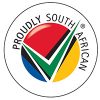Peter Bruce’s article on the dangers to local businesses and consumers of more localisation measures simply does not hold based on its assumption that localisation would push up prices while having no impact on job creation (“Local not so lekker if prices go sky high”, November 21). Localisation has an important role as a driver of economic recovery if producers remain competitive.
Competitiveness evaluated on price is achieved through economies of scale. The greater the production quantity, the lower the unit cost that is passed on to the consumer. Measured in quality, it comes from manufacturing expertise, investment in equipment and factory efficiencies.
Competitive service delivery is defined by the lead times and after sales service on which a locally based manufacturer can outperform an overseas supplier. There is significant capacity to increase uptake of locally manufactured products from the public and private sectors, and this is key to managing the supply and demand conundrum Bruce poses. By driving up demand through access to market and matchmaking opportunities between manufacturers and buyers, we can ensure more employment.
Lasher Tools, which Bruce uses as an example of a company that would be negatively impacted by increased local competition, is a valued member of both Proudly South African and The Manufacturing Circle. The company is highly competitive on price, quality and service delivery.
In response to Bruce’s article, Lasher MD Ian Kendal says: “Our spade with the Proudly South African Logo brazened on the shaft, just to set the record straight, retails for around R199 including VAT, whereas an imported spade retails for around R119. The imported spade is dimensionally smaller (to circumvent duties) and is an inferior quality product (proven by SABS quality tests and independent market surveys).”
The issue of cheaper imports is important and needs to be addressed by the SA Revenue Service customs division. Many consignments of goods enter SA with misrepresented and undervalued invoices, thereby attracting lower import duties, allowing importers to undercut local manufacturers. These imported goods will, however, not stand up to quality scrutiny against locally made equivalents.
Regarding cheaper imports, Kendal adds: “The consumer may be duped into believing they are getting the same quality product for a much better price, [but] nothing could be further from the truth.”
Bruce further contends, referring to Lasher Tools, that “the moment it has local rivals (and without competition you can be sure local prices will rise, which would fuel inflation).” Lasher emphasises “manufacturers keep their costs down by putting more volume through their factories, ensuring economies of scale and a sustainable pricing model”.
We believe it is incumbent on everyone to make local purchasing choices in a market that will always see imported equivalents available. Importers don’t create jobs. Let’s first buy local and second expand our export capacity to export products, not jobs.
Localisation is an undeniable driver of economic growth and job creation. There are many benefits of balanced trade but increasing our local manufacturing base, giving preference to locally manufactured goods and better regulating imports, will benefit SA in the long run.
Eustace Mashimbye
Proudly South African
Philippa Rodseth
The Manufacturing Circle
JOIN THE DISCUSSION: Send us an e-mail with your comments. Letters of more than 300 words will be edited for length. Send your letter by e-mail to [email protected]. Anonymous correspondence will not be published. Writers should include a daytime telephone number.


